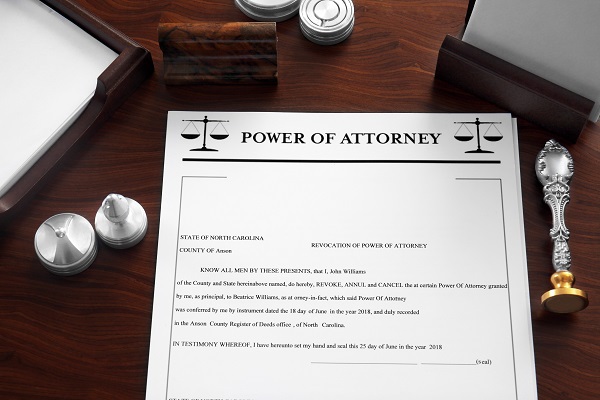
by Bill Miller | Jun 14, 2018 | Elder Law, Estate Planning, Medicaid
A job transfer took Harriet from Michigan to Alabama. The move was stressful, as most moves are. However, Harriet’s relocation was more complex than most. As an only child, Harriet was the only source of reliable help for her mother, who lived in a nursing home in Michigan. Harriet began making plans to move her Mother, but was concerned about her Medicaid benefits.
Medicaid Benefits
Although the funds for Medicaid flow from the federal government, individual states act as administrators of those funds. However, states are allowed to customize some rules and regulations. This flexibility means the rules for receiving Medicaid differ depending on your state of residence.
Fortunately, there are processes in place to move a Medicaid recipient from one state to another. Unfortunately, that process is not as easy as it could be.
Not Exactly a Transfer
First, the Medicaid coverage in the former state cannot just be transferred to the new state. Each state has different eligibility rules, and the recipient must meet the requirements of the new state. Also, Medicaid recipients are not allowed to have coverage in more than one state. So, establishing residency in the new state is the first step. The recipient then can cancel coverage from their former state and apply for Medicaid in their new state.
Requirements Related to Moving
The good news is that it’s probably not impossible to qualify for Medicaid in a new state. Although requirements vary, most states eligibility requirements are similar. A person who is already qualified for Medicaid in one state stands a good chance of qualifying in another state.
No length of residency requirement. States are not allowed to place length of residency requirements on applicants. An applicant can establish residency simply by moving to the new state.
Coverage can be retroactive. Naturally, it takes some time to get approval from the new state’s Medicaid agency. Fortunately, there should be no gap in coverage because Medicaid can be granted retroactively.
Maintain Medicaid Coverage During a Move.
Harriet was able to safely move her mother to a nursing home in Alabama. She cancelled the Michigan Medicaid benefits and immediately applied for Alabama Medicaid. Her mother’s application was approved, and her coverage continued.
Do you or a loved one need Medicaid assistance? Schedule an appointment with one of the qualified elder law attorneys at Miller Estate and Elder Law Our phone number 256-251-2137. Or you may choose to use our Contact Form to get started on your path to peace of mind.

by Bill Miller | Jun 13, 2018 | Elder Law, Estate Planning
As parents grow older, we become more involved in their lives. But your involvement should go beyond picking up the groceries and mowing the lawn. It’s time to find out if your parent has the right life care plan.
You say tomato, I say tom-ah-to.
‘Life care plan’ is another way of saying ‘estate plan.’ Either way you say it, estate planning is one of the most important processes you’ll go through.
Estate planning documents don’t just set forth how your parents want their property to be disposed of after death. Documents like a durable power of attorney, health care power of attorney, and living will dictate how your loved one’s golden years will unfurl.
The right estate planning documents can:
- protect your parent’s assets so they can pay for long-term care or leave an inheritance to their children;
- keep them from having to go through a guardianship or a conservatorship;
- assist in paying for long-term care; and
- provide critical information to medical providers.
But how will you know if your parent’s plans are right?
Talk to them.
Discussing topics like long-term care and death is never easy. However, your parents won’t be around forever. So, sit down and talk with them, go over any estate planning documents they’ve made. If they’d like, make an appointment with an attorney who can tell them whether their plan is still good to go.
Another benefit to talking to your parents? You give them the opportunity to state their wishes regarding medical treatment, end-of-life care, and funeral arrangements. Talking and planning may give them a great sense of relief.
Help them help themselves.
Maybe you have an older parent facing elder law issues. Maybe you are looking ahead to your own future. Either way, it’s important to know what rights and protections are available for senior citizens. Schedule a consultation with one of our attorneys and find out where you stand. Our phone number is 256-251-2137, or you may want to use the Contact Form on our website. We have offices in Anniston and Birmingham and assist clients in communities like Hoover, Vestavia Hills, Irondale, and Calera.
For more information about estate planning, please take a few moments to check out the videos on our website and YouTube channel.

by Bill Miller | Jun 11, 2018 | Elder Law, Estate Planning
Divorce has been around for a long time. But “gray divorce,” a relatively new term, refers to divorce of an older (gray-haired) couple. As with any divorce, your life will change. And any major life changes mean that it’s time to review your estate plans. Gray divorce may offer a few new wrinkles over a divorce that happens earlier in life.
Wills and Other Documents
Norma divorced her husband, Ray, after 42 years of marriage. However, she just never got around to changing her Will. When Norma passed away several years after the divorce, her family tried to probate her Will. Her ex-husband was supposed to receive all her estate other than a few small bequests to other family members.
Now, by Alabama law your ex-spouse is considered to have “pre-deceased” you if you pass away before changing your Will. It does not matter how long you were married before the divorce. Any bequests to your ex-spouse are revoked as soon as the split is finalized. In Norma’s case, her ex-husband will not receive any of her probate estate.
However, a Will is only one of your estate planning documents.
A power of attorney is a legal document where the principal (you) designates another adult to make decisions for them. With a durable power of attorney, the agent’s authority continues if the principal becomes incapacitated. If you named your spouse as your agent – as many people do – you need to change this document as soon as possible.
Two documents commonly used as advance directives are:
- The health care proxy in which you name someone to make health care decisions for you; and
- The living will in which you state your wishes regarding end-of-life treatment and name someone to speak for you if necessary.
As you might imagine, both documents should be changed as soon as possible.
Norma failed to change her health care proxy after divorcing Ray. She became incapacitated before her death. Ray was unwilling to make health care decisions for her, so her family had to go to court to get authority to act for her. The family was fortunate that Ray was not an unscrupulous person. Armed with Norma’s unchanged durable power of attorney, he could have cleaned out her bank accounts before her death.
Beneficiary Designations
Many, if not all, of your financial accounts and insurance policies allow you to state who will receive the funds in your accounts upon your death. Effective September 1, 2015, beneficiary designations to an ex-spouse are revoked unless the designations were specifically accounted for in the divorce settlement.
However, this does not mean you can forget about changing your beneficiary designations. In Norma’s case, her designations naming Ray were cancelled. However, she failed to name successor beneficiaries. Instead of transferring automatically to her heirs, the funds in her accounts were held up in probate.
Incapacity Planning
Hopefully, an older couple has done at least some incapacity planning. This may include buying long-term care insurance or establishing a living trust. Any plans made for incapacity will need to be untangled during the divorce negotiations.
Funeral and Burial Plans
Older people are more likely to have pre-paid funeral and burial plans. This type of plan will need to be negotiated. Even if a couple spent many years together, it does not mean they want to spend eternity next to each other.
Divorce Is Tough at Any Age.
The attorneys at Miller Estate and Elder Law have the experience you need to get the estate plan you deserve. Contact Miller Estate and Elder Law at 256-251-2137 to schedule an appointment or fill out our convenient Contact Form. We help clients in Anniston, Talladega, Birmingham, Gadsden and surrounding communities.

by Bill Miller | Jun 9, 2018 | Estate Planning
Every family is different. Only you can know how to approach your family about something as sensitive as estate planning. But discussions like this will help their peace of mind as they deal with difficult decisions and life events.
How to Help You with Incapacity . . . and How to Pay for It.
Facing the possibility of your future needs is hard. Your family and friends may be able to provide day-to-day living assistance. Discussing how you’d like family members assist you enables them to help without being asked. This may also be the time to share how you feel about in-house and nursing home care.
Let your family know how your long-term care will be covered. For example, do you have funds saved up specifically for long-term care, have you purchased insurance to cover increased medical needs, or have you already started planning your Medicaid eligibility.
Finally, tell your family about any estate planning documents you’ve prepared. Your Health Care Proxy or Medical Power of Attorney, Living Will, and Durable Power of Attorney provide your loved ones with guidance on how to handle medical and financial decisions for you.
What You Want Them to Do with Your Stuff.
We encourage our clients to talk to their families about how to handle their possessions after they pass away. While talking about this is great, it’s even better to have a Will or trust in place that distributes your estate as quickly and painlessly as possible. You don’t have to tell your family every detail of your estate plan. However, make sure your executor knows that you have a plan, where your plan documents are located, and which attorney to contact after your passing.
How to Say Goodbye.
Talking about death can be upsetting. Let your family know you’ve made plans to make your passing easier on them. If you’ve paid for pre-funeral arrangements or have definite ideas about your memorial service, share these now.
It’s never easy to talk to your family about estate planning.
But it is necessary.
If you haven’t made your estate plan yet, don’t delay.
The attorneys at Miller Estate and Elder Law stand ready to assess your needs and develop the right plan to meet those needs. For a free consultation, contact us at 256-251-2137 or use our convenient Contact Form. We have offices in Anniston and Birmingham, and we help clients in the Gadsden, Hoover, Talladega, Vestavia Hills, and surrounding areas.

by Bill Miller | Jun 3, 2018 | Estate Planning
When something is durable, it’s built to last. Tough. Resistant to pressure. Strong. Just the qualities you want in an important legal document like a durable general power of attorney.
A Powerful Legal Document.
A power of attorney is a legal instrument where one person authorizes another person (the agent) to act on their behalf. Sometimes the authorization is very broad. Some are very limited while others apply only to a specific occasion. There are even documents with the specific purpose of authorizing someone to make medical decisions for you. Whether a power of attorney is general or durable is an extremely important distinction.
When is it Durable?
Authorization to act granted by a general power of attorney ends when the principal, the person who signed the power of attorney, becomes incapacitated, disabled, or unable to communicate.
A durable power of attorney, however, remains in effect regardless of the principal’s capacity, or ability to make decisions.
Consequences of Signing a Power of Attorney That is Not Durable.
Let’s say Margie, a 55-year old woman, signs a general power of attorney as part of her estate plan. She authorizes her husband, George, to act on her behalf. The powers given to George take effect immediately and cover pretty much every financial decision Margie might have to make.
Unfortunately, the next year Margie receives serious brain injuries in an auto accident. She is no longer able to communicate in any meaningful way. Fortunately, her advanced directive for healthcare authorizes George to make medical decisions for her. He begins the heavy task of working out their finances. In the process, he learns that the power of attorney is no longer in effect because it is not a durable. George is forced to hire an attorney and start a conservatorship proceeding.
Make Sure You’ve Signed the Right Power of Attorney.
If you have not reviewed your estate plan for a while, or you’ve never taken that important step of making your plans, it’s time.
Schedule a consultation with one of our attorneys and find out where you stand. Our phone number is 256-251-2137, or you may use the Contact Form on our website. We have offices in Anniston and Birmingham, but also assist clients in communities like Hoover, Vestavia Hills, Irondale, and Calera.

by Bill Miller | May 28, 2018 | Business, Estate Planning
When someone starts a business, the last thing they want to think about is death. A close second? Incapacity. However, planning for these events is critical to a company’s success. If you are a business owner, you need to include your business interest in your estate plan.
What is “business succession?”
It’s a way of ensuring that a business will continue operating if the owner (or one of the owners) dies or becomes unable to participate for some reason. It also may protect a company when an owner retires or is in the midst of divorce negotiations.
How can I include a business in my estate plan?
First, if you have partners, you can put a buy-sell agreement in place. This document spells out how the business will be handled if you can no longer participate in the company. For example, your buy-sell may provide for an owner’s interest to be bought out by the other partner or by the company itself. Having a good buy-sell in place is no good, however, if there’s no capital to pay for the buy-out. Business owners may use insurance policies, sinking funds, payment plans, or personal funds to purchase another owner’s interest.
Your estate plans must be synchronized with your business succession interests. Does your durable power of attorney address your business interests? Your power of attorney can be broad or limited. Does your agent have the power to make decisions about your business? More importantly, does your agent have the ability to make those decisions?
Does your Will leave your business interests to family members who have little interest in the business? Your loved ones may not be the best people to continue operating the company.
What can happen if I don’t have a business succession plan?
Without the right planning, a business could be in real trouble.
Let’s look at Dan and Bob’s Construction Company. Dan and Bob started their company from nothing. After 30 years, business was thriving and expanding every year. Then Bob suffered a major stroke, something the average 50-year old doesn’t expect to happen. Although Dan and Bob were astute businessmen when it came to building houses, they had failed to put together a business succession plan.
The company was thrown into confusion because Dan did not have the authority to make financial decisions by himself. One of Bob’s sons tried to take his place in the business but had no interests in business of any kind. Bob had not executed a durable power of attorney that would allow anyone to make financial decisions for him, so his wife had to petition for a guardianship/conservatorship. The company suffered cost overruns and angry clients because they fell behind in honoring their contracts.
A buy-sell agreement would have allowed the company to smoothly transition. Bob’s partnership interest could have been bought out by Dan or by the company itself.
Don’t Have an Estate Plan Yet?
The attorneys at Miller Estate and Elder Law help their clients develop estate plans that cover all their assets, including business interests.
For a free consultation with an experienced Alabama attorney, contact us at 256-251-2137 or use our convenient Contact Form. We have offices in Anniston and Birmingham and serve clients in Gadsden, Hoover, Talladega, Vestavia Hills, and surrounding areas.





